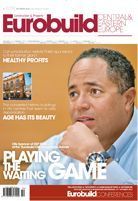I hate the authorisation process, even though I think it is a useful tool. It often helps both parties clarify certain issues and put them in a suitable context. And I accept this. Nobody wants to be misunderstood. However, when I talk to someone, I count on them treating our meeting seriously and saying something substantial. I do a similar thing. I try to write down and present the interlocutor's point of view honestly. However, when it comes to the authorisation of an interview or a statement for an article, instead of the initial illuminating remarks, sharp observations and (at times) colourful expressions, I tend to end up with PR and marketing-speak in an anodyne-sounding stream of obviousness. Sometimes this only affects quite trivial matters; but other times the issueę concerned is really important for the industry - and in such cases a spade needs to be called a spade, instead of obscuring it in euphemisms, paraphrases and circumlocutions. PR and marketing departments often




























































